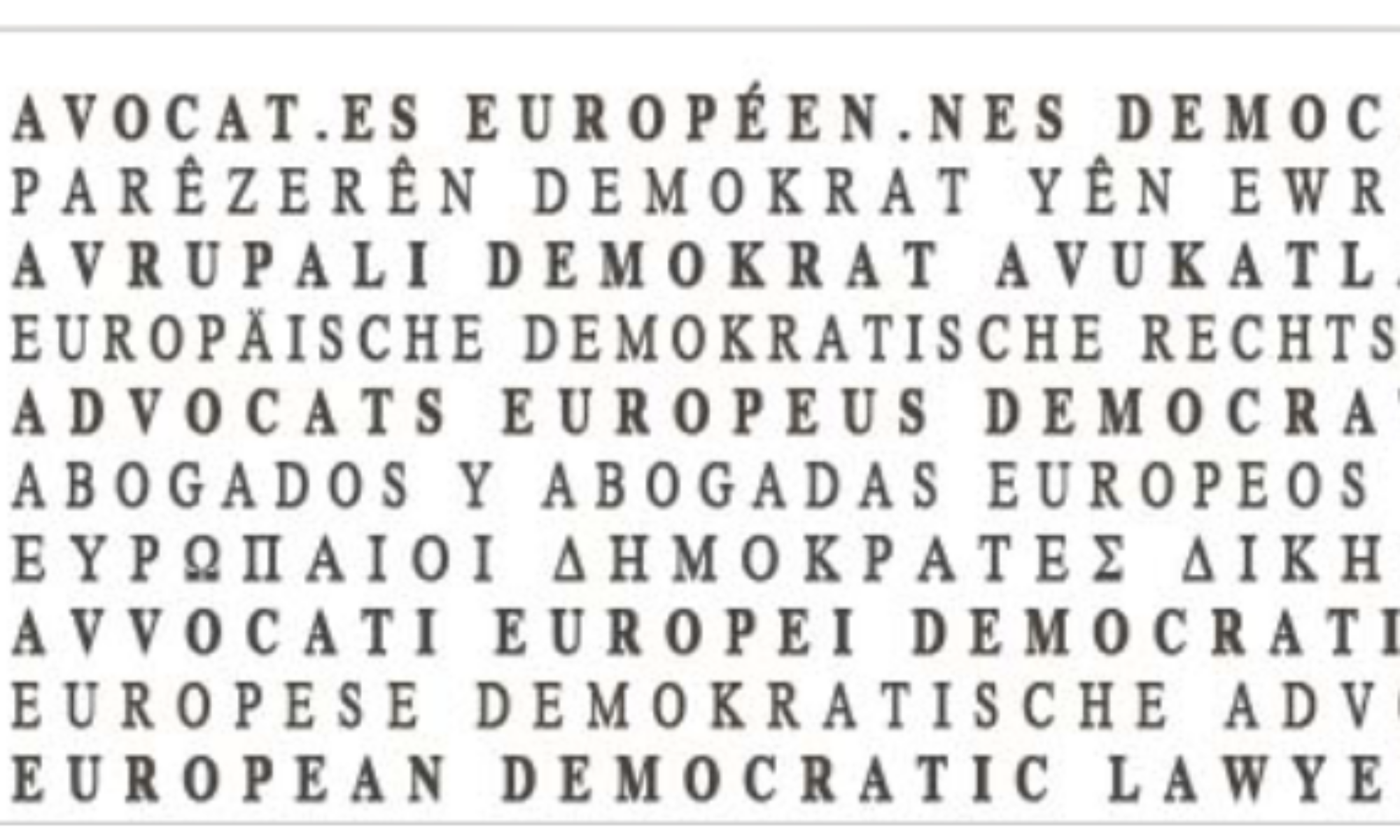Approximately 300,000 lawyers are practising in China. Lawyers in China are closely monitored by the State for their work. Apart from direct intervention from the judicial bureaus and the lawyers association, lawyers are kept under control also by a controversial Annual Inspection system. In order to continue their practice, lawyers have to submit their lawyer’s licence to the judicial bureau, the executive branch of the judiciary, for inspection on an annual basis. They will be scrutinised for the cases they handled, especially the so-called “politically sensitive” ones, which are often with human rights and/or rule of law implications. A lawyer who fails the inspection will not be given a stamp on his or her licence. The stamp, which is an administrative measure and without legal basis, will determine if a lawyer can continue his or her practice in the following year. The authorities may also suspend the lawyer’s practice by holding the licence for a prolonged period of time, hence stopping the lawyer from practising.
In their daily practice, lawyers also encounter harassment and intimidation by the public security officers, a special branch of the police, and by the courts. They could be forbidden to meet their clients and/or to have access to files, often and again for the so-called politically sensitive cases. Situations of this kind may result in lawyers being criminally detained or subjected to violence if they insist that their procedural rights or due process be observed. Other measures against the rights of lawyers include forcing them and their family to constantly move home and/or forbidding them from travelling outside the country.
International treaties
China has ratified the following international human rights treaties (date of ratification):
- Convention on the Elimination of All Forms of Discrimination against Women (1980); International Convention on the Elimination of All Forms of Racial Discrimination (1981);
- Convention against Torture and Other Cruel, Inhuman or Degrading Treatment or Punishment (1988);
- Convention on the Rights of the Child (1992);
- International Covenant on Economic, Social and Cultural Rights (2001);
- Convention on the Rights of Persons with Disabilities (2008)
China has signed but not ratified the following treaty:
- International Covenant on Civil and Political Rights (signed in 1998)
China has also supported the Basic Principles on the Role of Lawyers adopted by the 8th United Nations Congress on the Prevention of Crime and the Treatment of Offenders in Havana, Cuba, in 1990, which inter alia, obliges the State to protect lawyers.
In China, the defects in the Criminal Law (CL) and the Criminal Procedure Law (CPL) have also put the rights of lawyers at risk. While the CL provides the authorities with arbitrary powers to bring criminal charges against lawyers, articles 306 and 309, for instance, the CPL can subject detained lawyers to prolonged pre-trial detention with deprivation of rights under various pretexts, articles 37 and 73, for instance. As past experiences reveal, lawyers held under this kind of situation could be subjected to torture or inhuman treatment.
Lawyer Pu Zhiqiang was sentenced on December 22, 2015 after being detained for over 19 months. He was found guilty of “inciting ethnic hatred” as well as “picking quarrels and provoking trouble”. Another lawyer recently imprisoned is Tang Jingling. He was sentenced to five years imprisonment in January 2016, 20 months after his first detention in May 2014, for “inciting subversion of state power”. Most recently, the director of the Fengrui Law Firm, which is at the centre of the 709 crackdown, was sentenced to seven years imprisonment for allegedly “subverting state power”.
709 Crackdown of Human Rights Lawyers and Defenders
On July 9, 2015, human rights lawyer Wang Yu and her family disappeared in the middle of the night. Thereafter, a large numbers of human rights lawyers and defenders were persecuted in a concerted manner on an unprecedented scale. The crackdown resulted in an outcry and attention from the international community including legal professionals.
So far over 300 lawyers and defenders have been targeted. They were either summoned or temporarily detained, and subsequently 24 were formally arrested. Many of these 24 were arrested after being held for six months incommunicado.
From August 2 to 5, 2016, four of the lawyers were sentenced during controversial trials. The four cases involved human rights lawyer Zhou Shifeng (director of the Beijing Fengrui Law Firm) as well as human rights defenders Hu Shigen, Zhai Yanmin and Gou Hongguo. All were charged with the crime of “subverting state power”.
According to Amnesty International 245 lawyers and activists have been targeted since July 9, 2015, when the crackdown started.
Many different lawyers organisations and human rights organisations have expressed their outrage about the mass arrests. For example, the Lawyers for Lawyers foundation, the International Association of People’s Lawyers monitoring committee on attacks on lawyers, Lawyers’ Rights Watch Canada and the Hong Kong-based China Human Rights Lawyers Concern Group. Amongst other issues, they have focused on the forced disappearances and the detention of lawyers as criminal suspects and intimidation. Many lawyers organisations, Bar associations and human rights organisations have signed joint letters to express their worries about the detention and harassment of lawyers.
The CCBE, the Council of Bars and Law Societies of Europe, has recently sent a protest letter to the Chinese government urging the Chinese government to take effective steps to drop all charges against the lawyers and to order the immediate release of the detained lawyers; it is believed that the charges against these lawyers are solely motivated by their legitimate and peaceful defence of human rights.
It is sad and shocking that the charges against the lawyers and also their legal assistants fall under security-related crimes. Most of the arrested lawyers are accused of subversion of state power or inciting subversion of state power. With the effect that their rights to due process are suspended and that they suffer extended detention periods during which they are often deprived of access to their lawyers.
Many of these arrested lawyers and there assistants have been detained incommunicado. It is outrageous that even after many months in jail they were still not able to meet their defence counsel. Incommunicado detention often makes torture and inhuman treatment possible.
Even the families of arrested lawyers were requested to persuade these lawyers to “confess their mistakes” on a film and to incriminate themselves, which is in our opinion an attack on the integrity of evidence collection during police investigations.
We refer to the report of Lawyers’ Rights Watch Canada http://www.lrwc.org and to the very detailed information in this report, as well as the open letter to the President of the People’s Republic of China of July 9, 2016, about the due process for lawyers in detention. Finally, we refer to the report on the 709 crackdown.
English: http://www.chrlawyers.hk/en/content/report-709-crackdown
Report 1/8/2016 by:
Imane Aynan
Hans Gaasbeek
International coordinators of the Day of the Endangered Lawyer
http://www.dayoftheendangeredlawyer.eu


